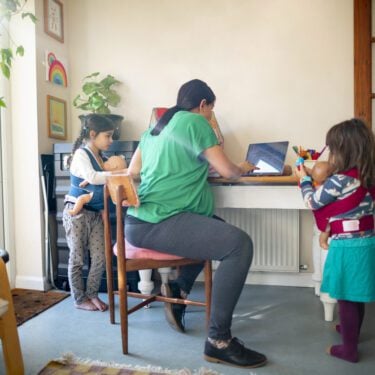-
Dr Line CaesUniversity of Stirling
-
Professor Julia AllanUniversity of Stirling
-
Dr Abbie JordanUniversity of Bath
-
Dr Simona HapcaUniversity of Stirling
-
Professor Bruce DickUniversity of Alberta
-
Professor Christina DuncanOklahoma State University
Project overview
This project will investigate the self-management challenges faced by vulnerable young people with musculoskeletal chronic pain.
Why this project is important
Musculoskeletal chronic pain affects 25% of young people aged 12-24, interfering with daily functioning across physical, social, academic, and emotional domains. Effective self-management can mitigate these impacts. A key element of successful self-management is young people’s executive functioning: their ability to control their thoughts, behaviours, and emotions. However, executive functions do not fully develop until adulthood and are weaker in people who are socio-economically deprived, who lack parental support, and who live with chronic pain. As a result, self-management is more difficult for some young people than others.
What it will involve
The research team will:
- Identify key self-management tasks for young people with musculoskeletal chronic pain.
- Develop a tool to assess engagement with these tasks.
- Examine differences in executive functioning development between young people with and without chronic pain.
- Investigate how socio-economic status influences executive functioning development.
- Assess the impact of executive functioning on self-management engagement and pain interference.
- Explore the role of environmental inequalities, such as socio-economic status and parental support, on self-management engagement and pain interference.
The research will be completed in 3 stages:
- Co-develop a classification of effective self-management tasks and a tool for assessing engagement with these self-management tasks, through interviews and workshops with young people, clinicians, and charity representatives.
- Analyse existing cohort data to evaluate the role of executive functioning and socio-economic status on pain interference (i.e., the impact of pain on daily activities).
- Collect new data in young people to further investigate executive functioning, socio-economic status, parental support, self-management, and pain interference.
How it will make a difference
Ultimately, the research team hope to improve the ability of young people to effectively manage pain. The standard classification of key self-management tasks and tool to accurately assess effective engagement will be useful for young people and clinicians. To ensure widespread uptake, the tool will be freely available. Additionally, this will help facilitate future research by enhancing measurement precision and reliability. Other outputs will include infographics and a series of videos and blogs led by young people.




























